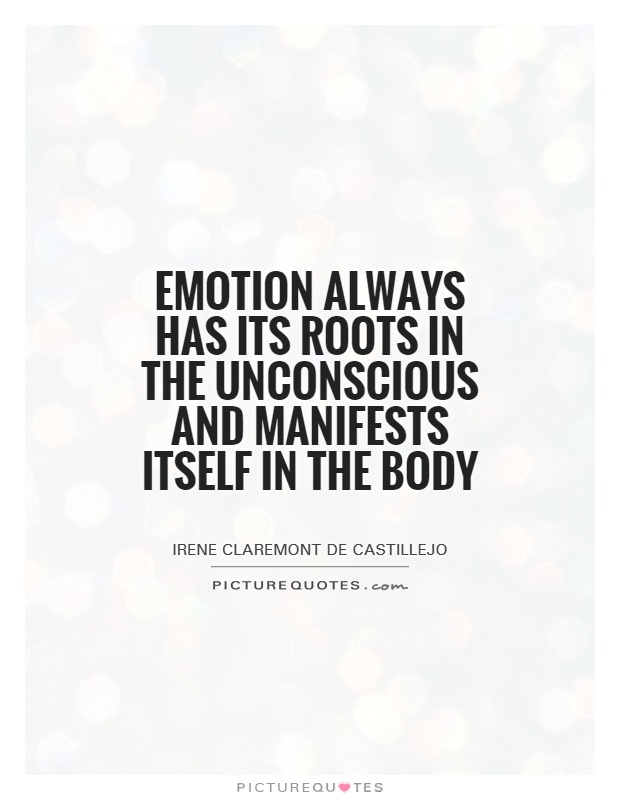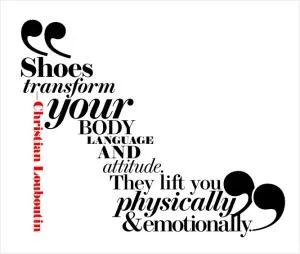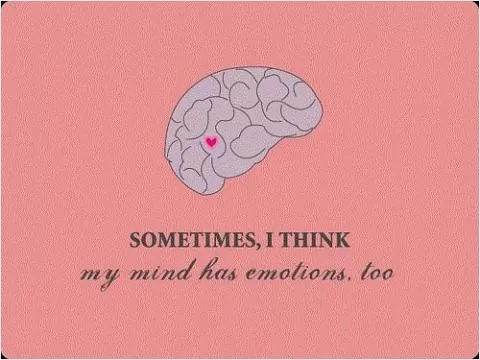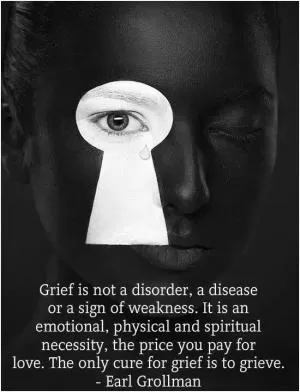Emotion always has its roots in the unconscious and manifests itself in the body

Emotion always has its roots in the unconscious and manifests itself in the body
Irene Claremont de Castillejo was a Swiss psychologist and Jungian analyst who made significant contributions to the field of depth psychology. One of her most notable beliefs was that emotion always has its roots in the unconscious and manifests itself in the body. This idea is central to the Jungian perspective on the human psyche and the ways in which emotions are experienced and expressed.According to de Castillejo, the unconscious mind is the source of all emotions. It is the repository of our deepest fears, desires, and memories, and it shapes our emotional responses to the world around us. Emotions are not simply fleeting reactions to external stimuli; they are complex and multifaceted experiences that are deeply rooted in the unconscious mind.
De Castillejo believed that emotions manifest themselves in the body through physical sensations and symptoms. When we experience strong emotions such as anger, fear, or sadness, our bodies respond in a variety of ways. We may feel tension in our muscles, a knot in our stomach, or a racing heart. These physical manifestations of emotion are not random or coincidental; they are the body's way of processing and expressing the unconscious feelings that lie beneath the surface.
In the Jungian tradition, emotions are seen as a gateway to the unconscious mind. By exploring and understanding our emotions, we can gain insight into the deeper layers of our psyche and uncover hidden aspects of ourselves. De Castillejo believed that by paying attention to our emotional responses and the physical sensations they produce, we can begin to unravel the mysteries of the unconscious and embark on a journey of self-discovery and healing.












 Friendship Quotes
Friendship Quotes Love Quotes
Love Quotes Life Quotes
Life Quotes Funny Quotes
Funny Quotes Motivational Quotes
Motivational Quotes Inspirational Quotes
Inspirational Quotes